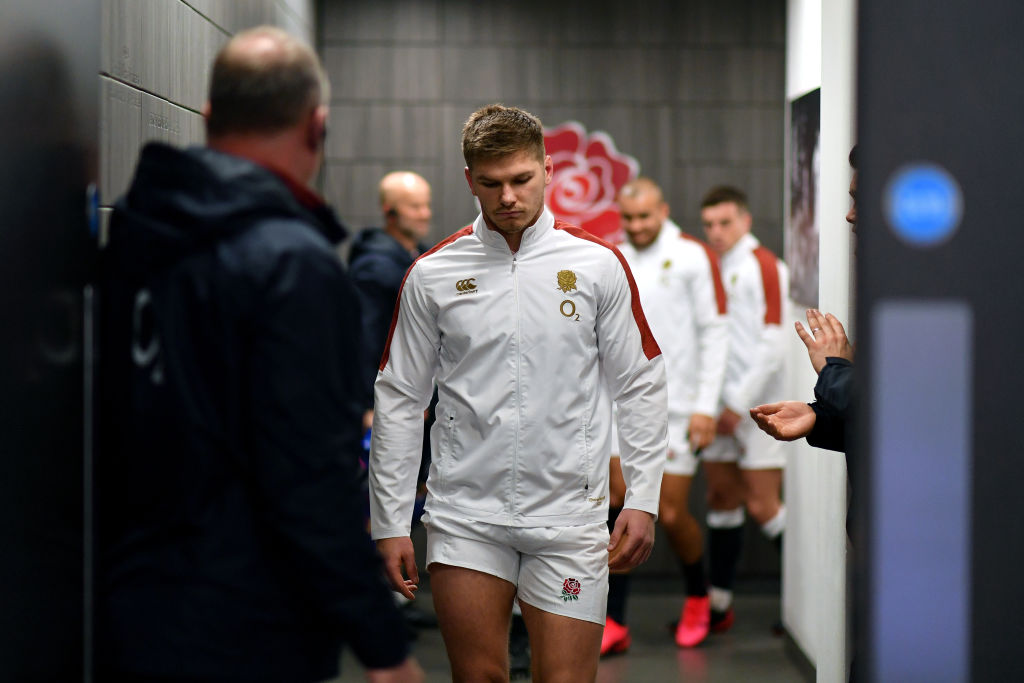England and Wales lift ban on cameras

LONDON, ENGLAND - FEBRUARY 23: Owen Farrell of England leads his team out of the changing room prior to the 2020 Guinness Six Nations match between England and Ireland at Twickenham Stadium on February 23, 2020 in London, England. (Photo by Dan Mullan/Getty Images)
England and Wales have lifted their life-long ban on television cameras from filming inside their respective dressing rooms.
Their historic decision will take effect from the start of the Six Nations, allowing ITV at Twickenham and BBC in Cardiff to take viewers where they have never been before. The Rugby Paper understands they will be allowed live access before, during and after every match in the tournament.
Broadcasters have been knocking on the door marked ‘Strictly Private’ virtually since live coverage began during the 1960s. A decision taken at a council meeting of the Six Nations in the last fortnight confirms that the door is about to be opened at long last to the watching world.
“This is great news for everyone because it will enhance live coverage and attract new viewers,” a leading television executive tells The Rugby Paper. “We’ve been asking politely for such access every year for the last 20 years, probably longer.
“No matter what we said, the inner sanctum always remained out of bounds. Every year we put our case and every year England and Wales voted against it. Now that we have access, at long last, viewers will be able to see exactly what it’s like in the final moments before kickoff, at half-time and again after the final whistle.”
Last year, four of the Six – France, Ireland, Italy, Scotland – agreed to open their dressing-room doors. Ben Morel, the Six Nations’ chief executive, welcome the change as ‘a good innovation. Giving greater viewing experience is definitely at the centre of what we want to do.’
England and Wales slammed their doors shut, their respective Unions abiding by the wishes of national coaches like Eddie Jones and Warren Gatland who saw it as an unnecessary intrusion. Welsh objections went all the way back to when Steve Hansen ran the national team some 20 years ago.
“There is a realisation in these tough times that the game needs all the promotional help it can get,” a Six Nations source said. “You can’t go on saying ‘no’ indefinitely to broadcasters who pump a lot of money into the game.”
On Six Nations opening day in February, viewers will be taken inside the home dressing-rooms at Twickenham and Cardiff for the first time just before their respective matches against Scotland and Ireland. Pictures will come from a camera at a fixed position.
For the first time in the Six Nations, players’ names will be worn above the number on their jersey, an established practice in Premier League football. “The aim is to make the players more readily identifiable, particularly to those viewers who don’t follow the game that closely,” a source said.
Both initiatives will be welcome most of all by CVC, the private equity company who paid £365m last year for a 14.3 per cent stake in the Six Nations, a one-seventh share which gives them the same voting rights as each of the competing countries.
For exclusive stories and all the detailed rugby news you need, subscribe to The Rugby Paper website, digital edition, or newspaper from as little as 14p a day.